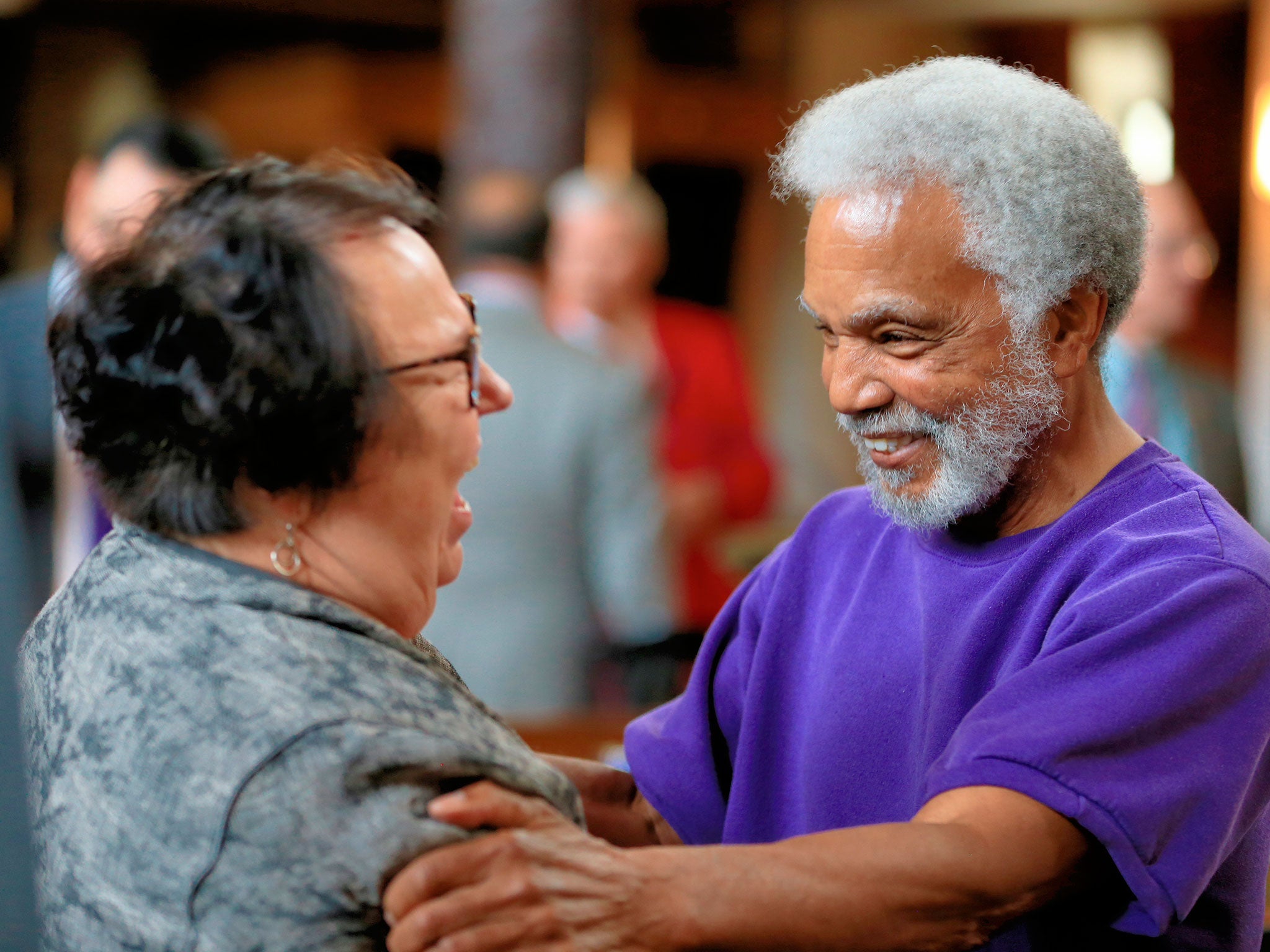Will Nebraska's decision to abolish the death penalty herald a broader movement towards ending executions in America?
A recent poll showed 56% of Americans support the option of death for those convicted of murder, the lowest level seen for over four decades

Nebraskans don’t normally see themselves as political outliers. A strongly rural state sat squarely on the Great Plains – the University of Nebraska football squad is called the Cornhuskers for a reason – the last time it voted Democrat in a presidential election was in 1964. Now they have reason to reconsider.
After weeks of drama, on Wednesday evening the state legislature passed a bill to abolish the death penalty by a margin large enough – if barely – to override a veto signed on Tuesday by the Governor Pete Ricketts, a Republican. It happened thanks to support from Democrat and Republican members alike.
It makes Nebraska the first reliably conservative state to remove capital punishment from its books in 40 years. North Dakota took the same step in 1973. It now joins the exclusive club of six other states that have also repealed death penalty laws since 2007 – Connecticut, Illinois, Maryland, New Jersey, New Mexico and New York. Washington and Oregon currently have moratoriums on executions.
Certainly it’s a choice that seems out of character for Nebraska. When Bruce Springsteen decided in 1982 to release a collection of deeply bleak ballads he had recorded originally as demo tapes he called the record Nebraska. The title track featured a man sentenced to death in the electric chair; it took the state until 2008 to switch from electrocution to lethal injection.
The vote may or may not herald a broader movement towards ending the death penalty in America. The most recent poll by the Pew Research Centre showed 56 per cent of Americans support the option of death for those convicted of murder, the lowest level seen for over four decades. Death penalty states are meanwhile struggling to schedule executions because of a shortage of the chemicals used in injections, in part because European manufacturers refuse to sell those drugs to the US prison system to kill people.
The arguments that forged the bipartisan coalition of state politicians in Lincoln, the state capital, ranged from economic to ethical. Most notable was an acceptance by many Republicans that the exercise of the death penalty may not fit either with the party’s commitment to small government and fiscal restraint – death penalty trials and appeals become very expensive – or with its self-declared Christian values.
Among those who had supported a vote to override the Governor’s veto were the state’s Catholic bishops. “We remain convinced the death penalty does not deter crime, nor does it make Nebraska safer or promote the common good,” they said in a statement.
The Nebraska decision fits with the broader judicial reform debate now gathering steam and also attracting the interest of both Democrats and Republicans, including in the early going of the 2016 presidential vote. As crime figures continue to fall – and did so still during the recent recession – draconian sentencing regimes introduced in the 1980s and 1990s are starting to look anachronistic. Support is growing instead for steps to lower the prison population, address those factors that put blacks behind bars in disproportionate numbers, and re-emphasise therapy over prison for drug offenders.
In Pictures: Capital punishment in Texas
Show all 6
Yet Nebraska is still a state in shock. First among the dismayed was Governor Ricketts. “My words cannot express how appalled I am that we have lost a critical tool to protect law enforcement and Nebraska families,” he said in a statement.
There has been some early collateral political damage. The state Senator Tommy Garrett acknowledged he was being forced to scrap, at least for one year, plans to pass a bill to make medical marijuana legal in the state. That, he said, would simply be one controversial step too many for conservative Nebraskans who take a very dim view of the blanket legalisation of pot in next-door Colorado.
He and his Republican colleagues know this in Lincoln because of the barrage of unfriendly phone calls they have been receiving from some constituents over the death penalty vote. “Welcome to politics, you know. There’s nothing uglier and grittier than politics,” he said. “Politicians are the lowest form of life.”
But in this case, maybe not. These politicians have put sanctity of life ahead of, well, politics.
Subscribe to Independent Premium to bookmark this article
Want to bookmark your favourite articles and stories to read or reference later? Start your Independent Premium subscription today.

Join our commenting forum
Join thought-provoking conversations, follow other Independent readers and see their replies